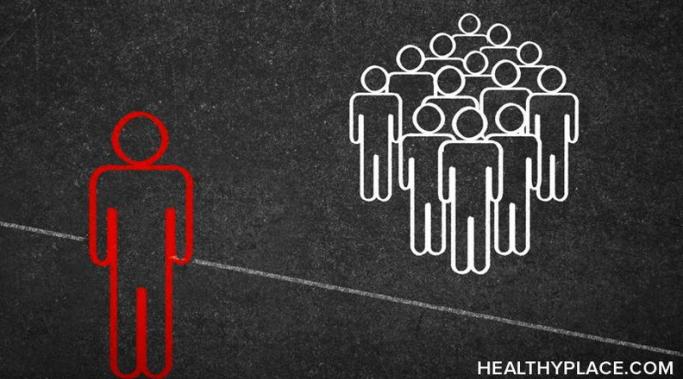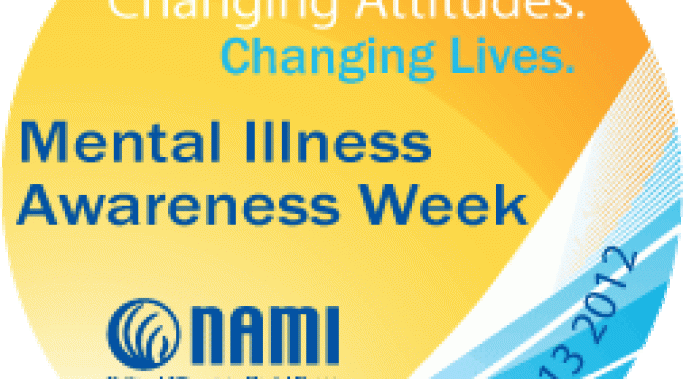Blogs
There is a type of denial of mental illness that goes beyond mere psychological denial – this is called anosognosia and it is the clinical term for the lack of insight required to understand you have a mental illness. Anosognosia is a neurological disorder thought to be caused by abnormalities in the frontal lobes (Impaired Awareness of Illness (Anosognosia): A Major Problem for Individuals with Bipolar Disorder).
Christie Stewart
In my previous blog, I shared lots of tips on what not to say and do when talking to loved one about self injury for the first time. In this video, I expand on the subject and offer advice about things you should do, as well as some tips on how reach out and offer self-injury help and support in a healthy way.
Here's the funny thing about the PTSD experience: Uncomfortable emotions become so familiar you don't even notice that you have them!
For example, in my own recovery, it wasn't until the anxiety disappeared that I realized I'd been living in such a state of high anxiety. Why is that??
I can think of a handful of things that have caused me trauma in my life, but being diagnosed with a chronic mental illness, bipolar disorder, is at the top of the charts. Those of us who live with a mental illness understand trauma on a deep level. We experienced trauma before our diagnosis, once finding out, and when working to become well again.
I feel ornery today. Woe to anyone who crosses me. You've been warned!
During my marriage, I would have put on my boxing gloves on a day like today. I would check my s%*t-list, which always consisted of only my husband's crap, and remind myself of what he got away with that deserved retaliation. I'd figuratively position myself smack dab in the center of the door frame and wait for him to come home. POW! Sucker punch. And boy, would it feel good to see that look on his face. I always got the first verbal hit on these kinds of days.
The anger inside of me today is the same. Bubbling, festering, the color of sick yellow pus. It needs out, and baby, cleaning this darn house for release just isn't going to cut it. Honestly, I want to write my ex a scathing email. Stir things up, let him know how I feel. Problem is, I don't really feel anything when it comes to him anymore. My ex hasn't been on my list for months because my list doesn't exist anymore. This anxious, angry feeling is mine alone. In the absence of abuse, what in the heck am I supposed to do with all this frustration?
This weeks vlog gives insight into the role that self-esteem plays in depression and how becoming aware of your depressive symptoms can help you build your self-esteem for life.
Big Pharma contributes to mental health stigma in its attempts to sell psychiatric drugs. Big Pharma's message is that people with depression need anti-depressives like diabetics need insulin and talk about chemical imbalance in the brain. They appear to be taking the blame away from person, but they are not. We eat this up and agree and repeat it thinking we are being politically correct. We think this helps people with mental illness feel less stigmatized. But it helps Big Pharma sell its message, and sell their medications.
When I sat down to write Invisible Driving in 1990 there was no way for me to know that this simple act of literary recklessness would hurl me down a path of mental health advocacy ultimately culminating, 22 years later, in the conclusion of this sentence.
Such is life in the land of Whackadoomious. Prior to writing the universe’s first bipolar memoir, I had labored valiantly to keep my mental illness under cover, hidden from the pitchfork-wielding town folk who welcome the mentally ill with the same enthusiasm they shower on seven-year locusts. Going public as a bipolar bear gave me what I call “confession Tourette’s” – I went from “lips are sealed” to bipolar blabbermouth.
Essentially, I wanted to educate the public as much as possible and, I dared, even defied, any of them to look down on me. I had a surly honking attitude back then. In time, I actually came to a point where I condescended to square shooters because – without mental illness as a teacher – their life experience was, quite frankly, inadequate in comparison to mine.
During my trauma, there was a moment so overwhelmingly horrific and painful that I literally willed myself to die. I became intensely still and allowed all energy to flow out of my body. Very soon, I felt myself leave my body and move toward a tunnel in the ceiling that was ringed with white light.
Obviously, I wasn’t successful in my death quest. But in that moment what did I experience?
Come out, come out, wherever you are!
Yes, it’s Mental Illness Awareness Week again and if you’re here, at HealthyPlace, you probably already got that memo. But you might be wondering what to actually do to promote mental illness awareness. No art exhibit, educational session or candlelight vigil in your neighbourhood? Don’t worry – anyone can promote mental illness awareness just by talking about mental health.







